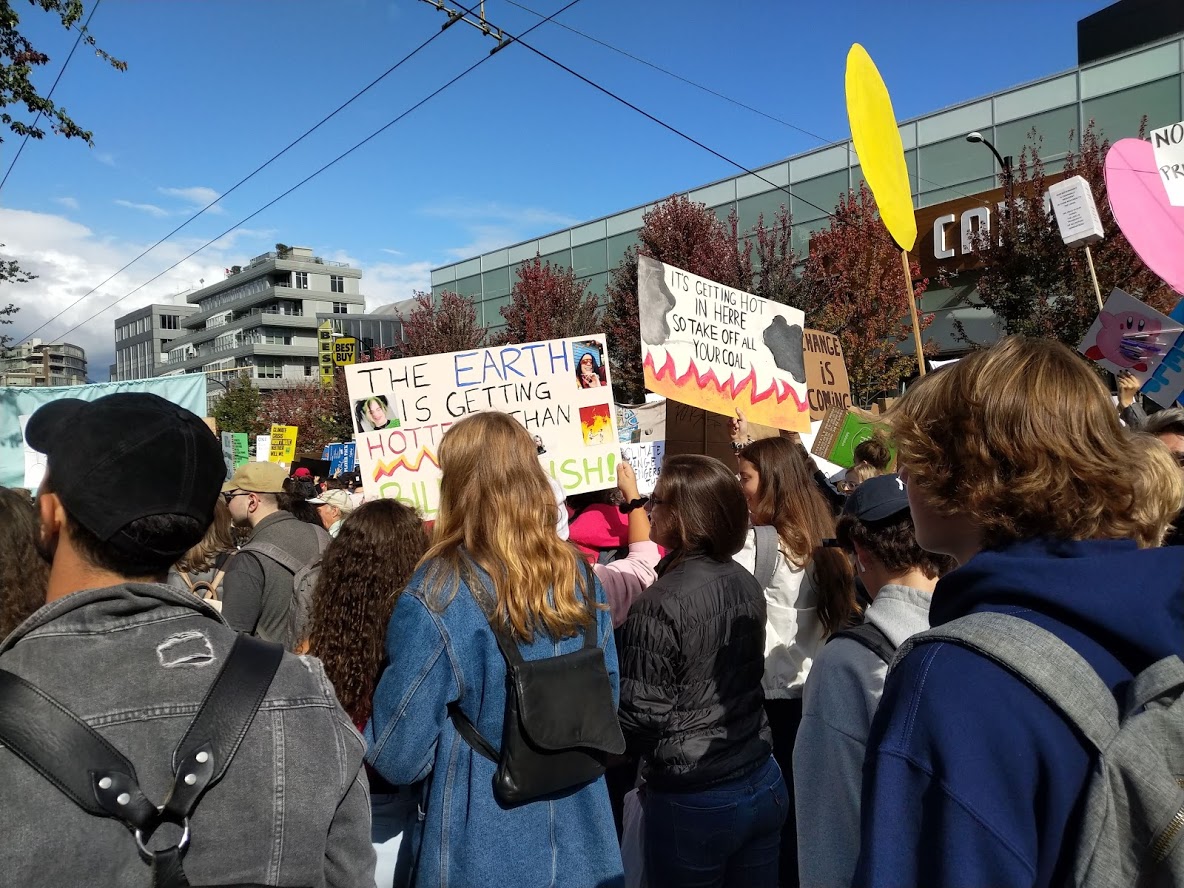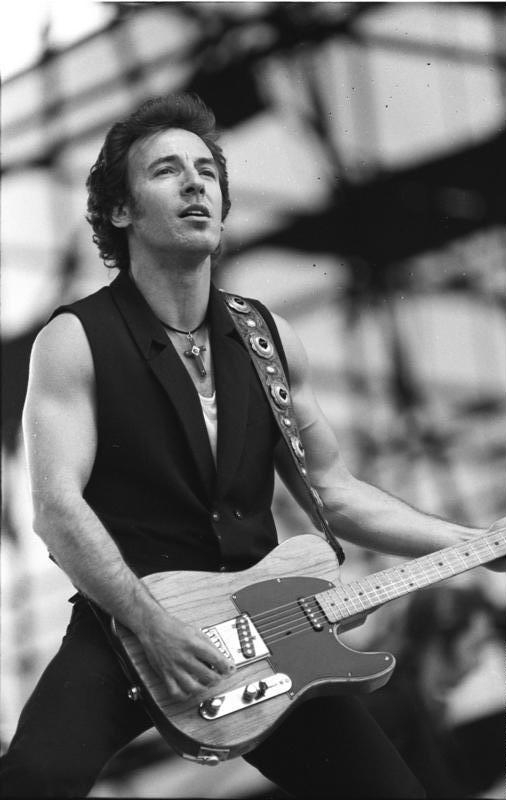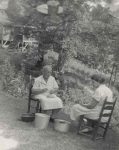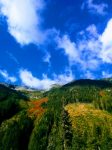I began reading the nonfiction book While Glaciers Slept, by M Jackson (see my interview with her), who is a climatologist and National Geographic expedition leader who studies glaciers. The author and I had some conversation, and though she is getting ready to lead an expedition now, look forward to more of our talk later. The book is entirely fascinating and well-written. M’s parents died two years apart while she was in her twenties, so the book evokes nostalgia, sentiment, and the unimaginable sequence of emotions when death is understood on one level but seemingly impossible to contain on another level. M ties climate change and her parents’ deaths together, something I can relate to as my father died not too long after I began to really look around me and expand my previous work with eco-fiction to include more climate change subjects in art and literature–and then really began to read even more about climate change itself.
M’s book starts out with a story about finding an old letter that was written from her dad to her mom, which M described as “probably a note of whimsy, a single moment between two people that holds details long lost now.” I revel in old letters, have scanned several from my dad to my mom back when they were still dating. These documents are pure gems. It made me think of the conversations we are having today, and how they may be passed along, more than ever before, due to such a vast communication network (blogging, Facebook, Twitter, Google+, Instagram, etc.). But hiding under the overwhelming number of media messages packaged in neat tidbits and gimmicks are the ones that convey something real, in my opinion. To me, climate change is the number one crisis we face today, yet it is tucked in with lesser news items, like fashion, for instance, and its story is regurgitated in keywords with shiny bows. So where is the real conversation about climate change, the kind of conversation that people will take to their living rooms?
This morning, on the way to work, my husband and I discussed a motion we are working with others on to take place in our city’s town council–and it is a pretty simple motion–that the city recognizes Canadians’ rights to a healthy environment. Though many cities in British Columbia have passed this in town council, our particular city is going to be a tough one to convince. We are tasked with finding people in our city to become interested in working with us. I thought of our friends who live in this city and could not think of one single person we know who cares enough about a healthy environment to get involved with this idea. We had a party last fall, and someone brought up climate change as a joke, not as a real problem. I felt my mouth go agape. These were intelligent, wise people, who I know if pressed would say they knew climate change is happening, but it is clearly not a conversation piece.
What it’s like to be here today? I write this in mind for my descendent relatives, like my great niece Adelaide and any children my children might someday have. This is my meaningful note, hoping it makes it way down through the generations. Well, for one, there’s plenty of news (and art and literature) that present climate change in today’s news. We have the data, and we have the imaginaries. There’s no shortage of that in the media. Where this conversation needs to take place, however, is in our living rooms. Grassroots. We know this is how things progress. Just look at today’s Supreme Court ruling on gay marriage–yay!–something that the people have pushed for over time and promoted until policy cannot ignore it. Same with decrying the confederate flag–decades of grassroots activism erupting in public outcries against racism, including racist symbols, just could not be ignored. Another big Yay. I nearly cried at work today listening to President Obama sing Amazing Grace as part of his eulogy for Clementa Pinckney and others who were shot and killed in the historic Emanuel African Methodist Episcopal Church in Charleston, South Carolina recently. We are so capable of doing the right things, of having these right conversations.
But the conversation about climate change, which affects every single human and every other species in the world, isn’t happening enough in our local watering holes. We go down to the commons for the water, the gossip, and aren’t talking about the elephant in the room: our water situation is in trouble. We follow the latest summer fashion for bikinis but fail to really care about healthy water and beaches or rising sea levels. We order delicacies for dinner, yet are ignorant of warming waters, disappearing seafood, and where our food will come from tomorrow. We run in warmer weather, in increasingly rough storms, yet do not have the conversation about these things. I am part of a running group that could probably give two shits about climate change–nor do the local members talk about the heat wave and drought we are running in now as anything but pesky weather. We have to wake up and realize this is the new normal, not just another drought.
I don’t know how to explain this to you, Adelaide, or other future descendents. I could call it the blind leading the blind, or an uncomfortable conversation to really have. I could say it’s much easier to joke about it at parties rather than talking about how it is already affecting us. I could say that humans do not have the capacity to know how to talk about the unimaginable, as M Jackson put it. I could say that whether or not we intellectually accept that climate change is happening, some of us deny it by simply not facing it.
When my dad died, I was alone. Not during the funeral but after I got home. Outside of my husband, there was nobody to talk to about what I was feeling in those impossible moments after the initial surprise happened and after a week of being cradled by family. I had friends who were so worried about what to say they forgot to even tell me that they were sorry my dad had died. I had other friends, who were well-meaning and did say they were sorry, but couldn’t look me in the eye. Or they were not sure what to say. I believe dealing with climate change is like dealing with death. Nobody knows what to do or what to say. Accepting death is hard, isn’t it? The death of lifestyles, of so many things. Some scientists have said we are in a mass extinction period. Nobody knows how to talk about death. Used to be that when someone died, people outwardly cried and wailed and mourned. I remember seeing this at southern funerals when I was very young. They also had all night wakes and looked death in the face. Now we fit death into a neat package where someone is making a good profit on caskets and pretend it’s not really as bad as it is by quickly viewing a perfectly preserved and made-up face and suited body before closing the casket.
We have to talk about death, about climate change. We have to face it head on and not be afraid. Luckily, I have family members–particularly my dear sister, Elaine–who remember Dad and who will continue to occasionally talk for hours about dreams we still have about him, about our shared bittersweet memories, about the silly Dad who constantly had us in fits of laughter. These same people in my family are the ones who also share living room conversations about other important issues, like climate change, like gay rights, like the terrible racism that still exists in our society. We get very loud about these issues. We are not afraid to get angry about them. Reminds me of the time I briefly lived with my Aunt Barbara and her husband Ron in Kansas City. This was back in 2004, when we were in the Bush years. Obama was making some great speeches back then. We went to see John Kerry when he came to the city. Sometimes at night (I had an upstairs bedroom), I could hear Barbara and Ron yell at the television over volatile issues–some in our family are quite politically aggressive! But it felt good, and I would smile when they (both famous actors and then directors or stage managers) would quite dramatically throw the vocal punches at conservative fundamentalism that suppressed freedom and human rights.
What it’s like to be here today, as a human living through climate change and as a human who wants to talk about it, face it, and fix what we can from here on out? I usually feel like I’m writing or talking to walls. Well, it is hot today, and tomorrow I need to run for an hour as the second to last day of my 10K training. It will be in the 30s (90s) here, so I need to get up around 5:00 am and run then. Being normally such a mild climate in this area, we have no air-conditioning and I worry about our cats getting over-heated. I need to get some groceries this weekend, but we are doing more walks instead of driving–so that we can reduce carbon emissions. And this means taking the rolly cart and walking over to the market, which fortunately is not too far away, maybe a kilometer. We do not have it rough by any means, compared to many in the world, but this is what it’s like to be here today. I see that it will become worse. Mostly, I want to have this conversation with my friends today and not have to tell my heart to a five-year-old or to those who have not yet been born. But if you are there, if you read this some day, I hope you know that my heart is with you.







